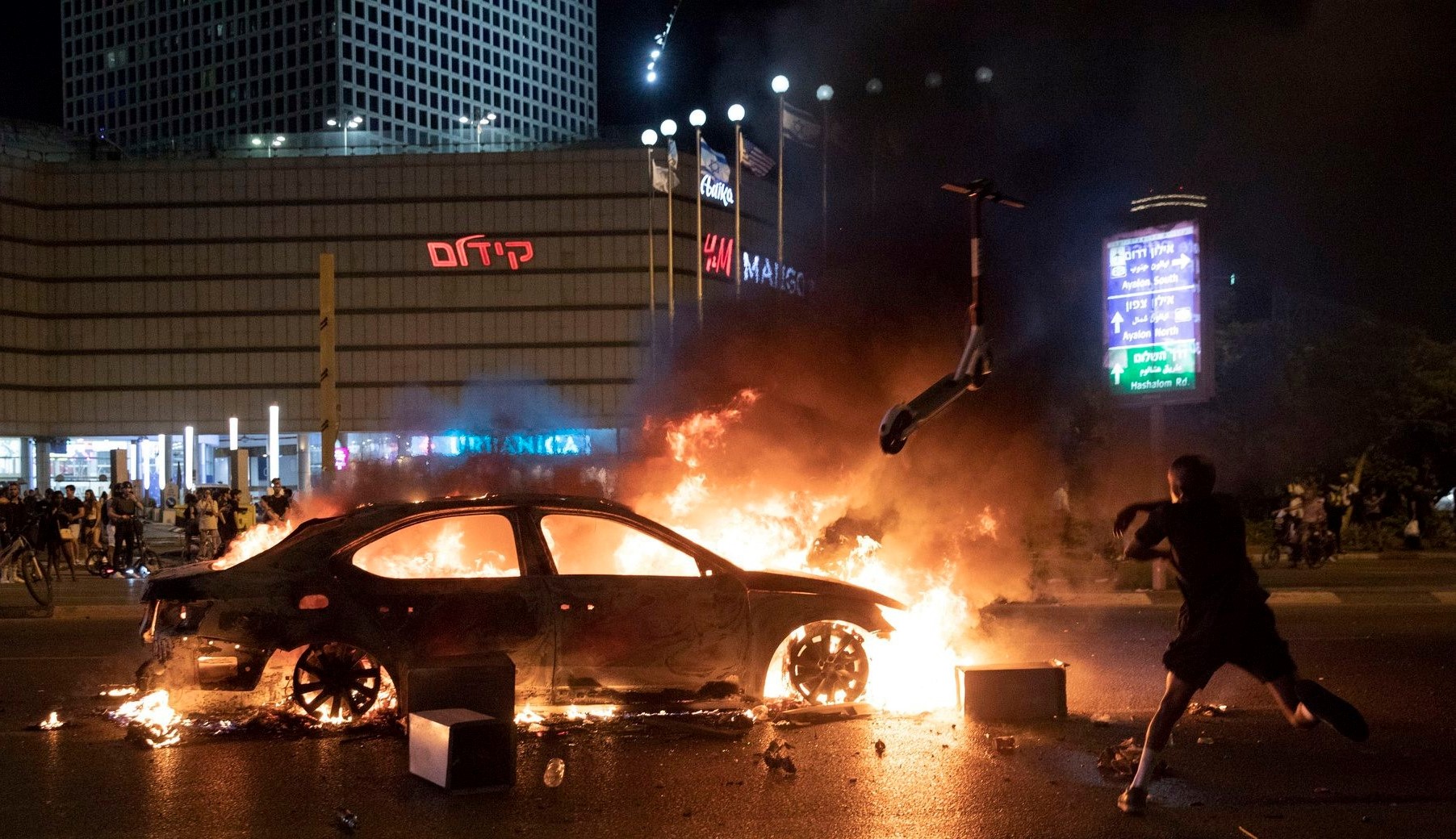The police officer who shot and killed Ethiopian Israeli teenager Solomon Teka in northern Israel on June 30 is expected to be charged with reckless homicide, instead of the more serious crime of manslaughter, the Justice Ministry’s department for the investigation of police officers announced Monday, July 15.

Following the killing of Solomon Teka, a teen of Ethiopian origin, by an off-duty police officer on the evening of Sunday, June 30, Ethiopian-Israelis and supporters protested in several Israeli cities on July 3 against systematic racism and police violence. This photo was taken during demonstrations that turned violent in central Tel Aviv. (Photo: Activestills)
On Monday, police also detained dozens of Ethiopian-Israeli demonstrators in Jerusalem who were protesting Teka’s shooting and police brutality. In addition, two demonstrators involved in similar protests in other cities earlier this month were charged with assaulting police officers and torching a patrol car.
A representative of the Justice Ministry department announced that its investigation into the death of Teka, an 18-year-old resident of Kiryat Haim, outside Haifa, is over and that the case would now be transferred to the State Prosecutor’s Office. In parallel, Haifa’s Magistrate’s Court released the officer, whose name has not been publicized, from house arrest.
The news arrived as Solomon Teka’s parents, Wbjig and Worka Teka, and other members of the 140,000-strong community of Ethiopian immigrants to Israel attended an emergency meeting of a parliamentary committee convened to address Israel’s failings in their integration. Immediately, they abandoned the session and joined about 100 protesters who gathered in the Rose Garden outside the Knesset, Israel’s parliament, in Jerusalem.
The Haifa Magistrate Court’s decision to release on bail the unnamed officer who shot Teka and to reduce the charges against him provoked anger in a community that has been buffeted by a spate of police shootings, that were, it says, a direct result of racism.
A statement released by the Teka family said that they “seek for the truth to be uncovered and justice served, but unfortunately police and the State Prosecutor’s Office, in their public statements, show a tendency to attribute reduced responsibility to a police officer who killed our beloved in his prime.”
MK Ofer Cassif (Hadash) commented that the department’s decision not to extend the officer’s remand raises grave suspicion that he will not face significant charges. “Even if the officer, who was off-duty at the time, shot at the ground and did not intend to hit anybody, he would not have fired a gun at a ‘whiter Jew’ or have killed him,” the Hadash MK said. The officer should be investigated for committing a hate crime – not for police negligence, Cassif added.
Shula Mola, the chair of the Israel Association for Ethiopian Jews, told Middle East Eye she was shocked by the decision. “There is no limit to the rudeness and lack of justice. It’s like we’re living on a different planet, as if laws, values and norms do not apply when it comes to Ethiopians,” she said. “We cannot accept that someone can murder a person and be released by a judge. I cannot understand how this happened.”
Related: Off-Duty Police Officer Shoots and Kills 18-Year-Old Ethiopian-Israeli


